 The most important thing I can do to get my school year off to a good start is to dedicate the coming school year to the Lord. Seek His Kingdom First Jesus promised that if I seek first His Kingdom, then everything I truly need will be added to me. No good thing will the Lord withhold from me! We like to gather as a family and pray for the year ahead. That includes everyone. Dad, Mom, teens, and littles all pray. This is not a Hallmark moment; it is a battle in the heavenly realms. Prayer Philippians 4 reminds us that instead of worrying, we can present all our requests to God. He will not only answer, but guard our minds and hearts with His peace. You see, Ephesians 6 reveals to us that prayer is a weapon of warfare for the Christian. God answers prayer! Dedicate the coming school year to the Lord, but don’t stop there. Include Jesus in every school day. Bring every problem to Him throughout the year, from difficulty memorizing multiplication tables to constant bickering between siblings. Surrender to Succeed
0 Comments
 Worldview is the set of ideas, values, and presuppositions through which you view the world. What? Well, it’s like putting on a pair of sunglasses that color everything you see. What kind of sunglasses do you wear? Everyone in the world wears a pair of sunglasses through which they view life, people, and ideas. Many people collect little pieces of their worldview over time through parents, school, movies, and friends. Biblical Worldview A Christian worldview is based on the Bible. The Bible reveals God’s heart and thoughts—the way He views the world. A wise person will try to line up his worldview with what the Bible has to say. Sometimes Christians don’t realize that their worldview is based more on secular ideas and morality instead of the Bible. The Bible speaks to all of life. The Bible speaks to every subject. Theology/ Who is God? What do you believe about God? Let me share with you what the Bible has to say. God Is. He exists. He has always existed. God is One and exists in Three Persons: Father, Son, and Holy Spirit. God created everything that exists, seen and unseen, out of nothing. He spoke and it came to be. He is personally involved in His creation. His creation is accountable to Him. God is Holy. God is Love. Life is more than what we can see in the natural world. There is a supernatural realm that is unseen. Angels and demons wage war in that supernatural realm. Christians are seated with Christ in this heavenly realm. We please God with faith. We access grace through faith. Faith is a gift from God. Ethics/Morality  "Let's see subs, tunnels..." I began. "You mean trenches," Jimmy interrupted. "Yes, trenchs. Let's do subs and a trench sundae for lunch," I decided. That would be fun! We were studying World War I, as part of our HIS Story of the 20th Century world history course. I didn't think the kids would enjoying eating rations, so we decided to be symbolic. We would eat subs because submarines, or subs, played a big part in World War I. Remember the sinking of the Lusitania? The kids loved the subs, but the real hit was the Trench Sundae! Would you like to make your own Trench Sundae? Here's how we did it!  What fun to study the USA with Crafty Classroom. We were so excited to download our USA Activity Bundle Pack. The check-out and process of downloading was so easy. The USA Activity Bundle Pack includes 3 e-books: USA State by State Activity Notebook, USA State Bird Art Cards, and USA 50 State Mazes. As soon as we downloaded our USA Activity Bundle Pack, we immediately got to work printing the first pages we wanted to use. We started with our home state and the states closest to us: Florida, Alabama, and Georgia. We downloaded their pages from the USA State by State Activity Notebook. We also printed the mazes from each of those states from USA 50 State Mazes. Finally, we printed mockingbird page from the USA State Bird Art Cards e-book. This is how we put it all together in a geography lesson. We started with a large USA map and found all three states. We found the capitals: Tallahassee, Montgomery, and Alabama. We found rivers and lakes, cities we'd heard of and cities we hadn't. We spent a lot time exploring the large map. Next, we read a book on Florida from the library and filled our our Florida notebook page and completed the map. We decided to make our mockingbird (Florida state bird) art card next, coloring in our bird with colored pencils. We decided to make a list of all the places we had visited in Florida and another list of all the places we wanted to visit in Florida. Then we made a citrus fruit salad with Florida grapefruit, oranges, and tangelos. We followed the same format for Georgia (peach cobbler) and Alabama (banana pudding).  "It's just because you think Robin Hood can do no wrong!" Everyone laughed. We were teasing Victoria who was hotly defending Robin Hood's behavior in The Merry Adventures of Robin Hood. In answer that Robin Hood was a thief, Victoria defending him saying, "He was returned money the government stole from people to the people who were stolen from." There was more laughter and we started discussing some of the other characters. We were enjoying our bimonthly book club, as part of our American Literature and Research class. Our book clubs had included lots of laughter and some emotional moments where tangents took us to emotional issues of our lives or what was going on in the world around us. We compared characters to people we knew, talked about characters we loved, and how we wanted to the ending to be different. As we talk about what we liked and didn't like, plot, tone, mood, setting, worldview, and theme, we found ourselves digging deeper into books than we ever had before. There was just something about talking together that often led to deep analysis. We always had fun together even if we didn't like the book a lot. Book clubs, after all, are friendship builders. Best of all, book clubs actually motivated students to hurry and finish the book so we could all discuss it together. I embraced book clubs over book reports because I wanted to build an enjoyable lifetime habit in my children's lives. I wanted them to read because reading is fun, interesting, entertaining, and a privilege. How Book Clubs Work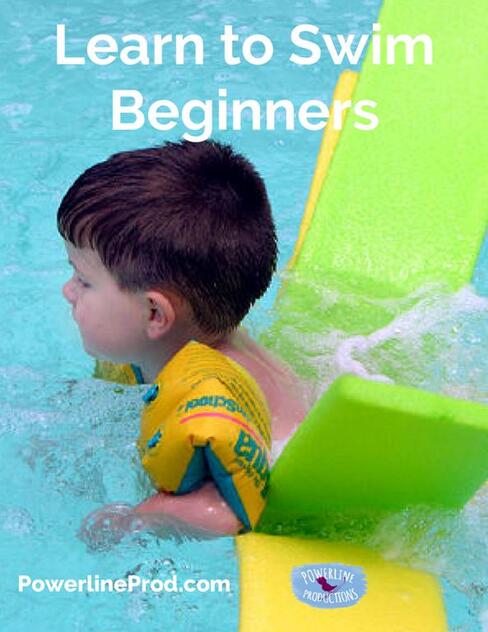 Here in Florida, swimming is part of life. There are lakes, pools, springs, the Atlantic Ocean, and the Gulf of Mexico to swim in. I remember taking swimming lessons as a little girl at a neighbor's pool. I blew bubbles underwater and learned to float. My children grew up in the water, too, but we taught them to swim ourselves, introducing them to the water while they were still in diapers. I definitely recommend swim lessons if you can afford them. All children should be safe near water. You never know when you will have to swim to escape danger or help rescue someone. The other day, we were swimming with my grandchildren and children in their neighborhood pool. Rusty got out of the pool, took off his floaties, and jumped back in. "He can't swim!" my son-in-law said sharply as I was watching him struggle in a state of shock. That jolted me and I scooped him up. My heart was pounding as I realized how quickly accidents happen. It reminded me of my baby sister who did the same thing. Took off her floatie and jumped right back into our next-door neighbor's pool. My neighbor Tommy jumped in and saved her life. She had quickly sunk to the bottom of the deep end. All children should be able if they jump or fall in a pool, lake, or other body of water to swim, escaping to safety. If you are looking for lessons or teaching children yourself, here are some steps to take babies and toddlers on their first steps to swim proficiency. 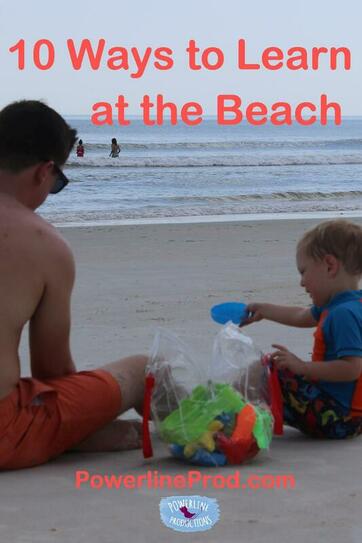 The beach is a great place to explore. You and your children can have all kinds of learning adventures along the shore, in the tide pools, and climbing the sand dunes. Here are some great ways to learn at the beach. Engineer a Castle that withstands the Waves Here’s a great STEM project. Construct a castle with a moat that will withstand the occasional wave. This might take several tries. Mark Off the Tides Place a sturdy stick that will withstand the waves every hour at the average place where the waves stop before rolling back. Then figure out how many feet the tide changes each hour. Estimate where it will be in 2 or 3 hours. Explore a Tide Pool When the tide goes out, a tide pool is often left behind. Explore the tide pool for little creatures. Sketch Nature Bring along a sketch pad, or easel with paper and pretend you are a world famous artist working on your next masterpiece. You can sketch the waves and the sky or zero in on a bird.  Homeschooling is an all-encompassing adventure. It takes over your whole life, especially if you choose to pursue a lifestyle of learning instead of trying to bring traditional school-style learning into the home. We like living books, hands-on-fun, and mentoring our children in the context of close relationships. Sometimes, Homeschool Moms can wonder what on earth they were thinking when they took the homeschool plunge. Not because it isn't wonderful? And fun! And exciting! But, there is that nagging fear! "Am I doing everything right? Are my children missing something they need in their education? Am I teaching effectively?" When I start to nervous about those things, I have to stop and ask myself, "Who is driving our homeschool bus?" Is it me? Or is it the Lord? You see, I can do an okay job educating my children, but if I want excellence in my home school, I need the Master Teacher to take charge. He is perfect in all His ways and knows everything about everything! Best of all, He wants me to surrender to Him and allow Him to take control of my heart, life, family, home, children, and home school. Once you surrender to Him, the pressure is off. The focus becomes honoring Jesus, praying, digging into His Word, and letting Him lead. Homeschooling becomes an adventure with Jesus! And so today, I ask you: Who is driving your homeschool bus? If you are driving, you might want to surrender to Jesus. He is an amazing driver! Jesus promises to lead us beside still waters, to nourish our souls, to give us wisdom, to lift our burdens, to fill our heart with joy, to answer our prayers, and work in us to will and to act according to His good purpose. He will never leave us. And don't forget: Jesus said in John 15 that apart from Him, we can do nothing.  Hey everyone! I have a guest blog at the zoo I call home, "Living Books and Unit Study Fun." Check it out here. Thank you to Felicia Johnson for the opportunity to share on her site. You have to check out The Zoo I Call Home. You will find resources and blog posts for your home school. I am a fan of Felica's blog where you will find almost everything you need to know about homeschooling. Check out the my article here and check out Felicia's blog here. Until Next Time, Happy Homeschooling! Warmly, Meredith Curtis 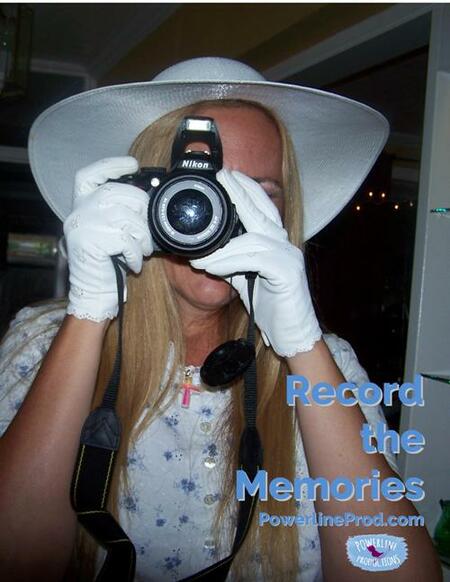 We are up and running. It’s a brand-new year. So much to be excited about. It’s hard to believe that soon this school year will just be a memory. My Missing Photos I have been homeschooling since 1991 and as I look back at our photo albums—yes, I used to get photos printed and put them in albums before digital—I find one set of photos missing. The photos of my children reading, working on a math problem, reading to a sibling, or doing chores. I have lots of photos of birthdays, holidays, field trips, and special days, but I wish I had more photos of ordinary school days. Maybe you do take lots of photos of school and chores, posting them on Instagram for the world to see. Good for you! You will treasure those memories one day. Storing My Photos As you go through the school year, don’t forget to snap photos and save mementos. Maybe you don’t scrapbook or print photos and put them in leather albums, but you can label and save them in folders. I don’t print up photos much anymore, unless I am framing them, but I do label photos with the date and list the people in the photo. Sometimes I just use initials like this: “Christmas Day 2016 JR JA Dad Jim KB Rusty.” My photos are organized on my computer, too. There is one folder for every year: 2000, 2001, 2002, etc. Then, I also have all twelve months in separate folders: Jan 2015, Feb 2015, March 2015, etc. Inside these folders are all kinds of folders: Beach 6 6 15, Road Rally 6 17 15, Mom’s BD 6 2 15, etc. These folders are descriptive, so I can easily remember the day by looking at the title. Finding Photos  As Moms, we, like all Christians around the world, are called to make disciples. “And Jesus came up and spoke to them, saying, ‘All authority has been given to Me in heaven and on earth. 19 [Go therefore and make disciples of all the nations, baptizing them in the name of the Father and the Son and the Holy Spirit, 20 teaching them to observe all that I commanded you; and lo, I am with you [always, even to the end of the age’” (Matthew 28: 18-20 NASB). Jesus didn’t tell His followers to make converts, but to make disciples that would walk with Him and walk in His ways. We are to GO. That is active, purposeful. We are to BAPTIZE. We lead people to Christ and facilitate a born-again experience with God. We TEACH. We don’t teach just a few things, we teach EVERYTHING Jesus has taught us. The most important disciples we will ever make are our children. So how do we impact their young lives for the glory of God? LoveLiving the Christian life boils down to loving Jesus and letting Him love and serve others through us. This is how Jesus made disciples. First, Jesus loved His Father and loved the people around Him. Second, Jesus loved His Father, loved the people around Him, and His disciples were with Him. Third, the disciples loved the Lord, loved the people around them, and Jesus was with them. Fourth, Jesus sent the disciples on trial runs to love the Lord and love the people around them. Love Jesus Wholeheartedly Flashback to the early 1990s! I was a young mom, interested in homeschooling, who noticed all of these amazing well-behaved children who respect their parents. I wanted children like that! As time went on, our family thrived with homeschooling. However, my children squabbled with one another. They were not perfect. Sigh. Comparing Ourselves to Other Families Over the years, I met so many moms who did so many cool things. I discovered homeschooling children who could compose symphonies, translate Dickens into Latin, and win prizes at debates. My children didn’t want to stand in front of a crowd. My kids are amazing, smart, funny, … and flawed. Face it. We are just an ordinary family who loves Jesus. And that’s okay. We don’t have to be The Incredibles with Super Powers. To enjoy and appreciate my children for who they are, I had to ditch comparing them with other children. You see I don’t know what goes on behind the front door of the child who can recite Bible verses in Hebrew or the six-year old who can read Jane Austen, so I will never have the full picture. I do know this. No family is perfect. Jesus was perfect, but even His family wasn’t. When I stopped looking at other families and started zeroing in on my own children, I could appreciate their gifts and live with their flaws. Cultivating Strengths My oldest daughter was a reader and a nurturer. I gave her plenty of books and opportunities to love on her younger siblings and other little ones in church. She quietly served in the nursery and babysat. Julianna was a strong leader so I provided opportunities for her to manage projects like getting us out the door for a field trip when she was younger and planning the details of our vacation when she got older. I looked for their strengths and capitalized on them. Cultivating their strengths became a major focal point for me after I read a business article that said that successful peoples put 70% of their time cultivating their strengths, 25% learning new things, and only 5% of their time overcoming weakness. Wow! I had been really focusing on overcoming all their weaknesses so they could be like the other homeschooled kids I saw around me or maybe like that ideal kids I saw in my mind. Now, homeschoolers put a lot more time in learning that 25% so I didn’t use this as a formula, but it certainly got me thinking about cultivating strengths which built their confidence, rather than making them feel over and over like they didn’t measure up. Overcoming Weaknesses 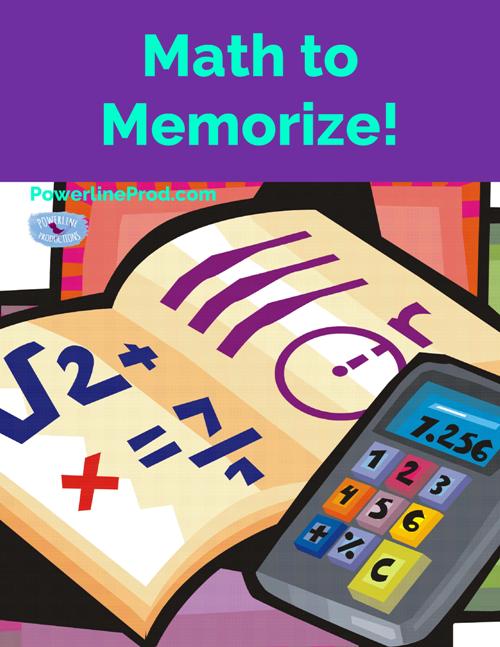 There was a time when learning math involved memorization. Today we tend to shy away from memorization or never get around to it. I’m here to tell you that, even with calculators and computers, we still need to memorize certain facts in math. Multiplication Facts This is always the number one thing math teachers tell students to memorize. It is also the number one thing that math students claim they can use their calculator for instead of memorizing them. Here’s the truth. Calculators are slower than your brain. On any given day it will take longer to enter 7x6= into a calculator than it will for you to remember that the answer is 42. This may seem like a sacrifice your students are willing to make but let’s put it into perspective. Most good math programs have students doing 30 or more problems per day. If every problem takes longer because of typing into a calculator math class can get extended much longer than it needs to be. Further, when students take college entrance exams, they are timed. Test takers need every single second they can get. Human error is another problem with calculators. I call it “fat fingers”. It’s amazing how easy it is to hit the wrong key on your calculator. If you are not carefully watching every digit entered, you won’t even know you made the mistake. If you are watching every digit, you’re taking a lot more time. Being able to quickly do your multiplication portion of math problems will improve retention of concepts. If students are fumbling through punching multiplication factors into a calculator, they are being distracted from the concept they are learning. This distraction makes it more difficult to learn and remember. There are many different methods for memorizing multiplication facts. The simplest way to do it is to just start writing them. Flashcards and memorization charts are also very useful. I took an idea from my mother’s school days, back in the 1940’s and created a great little mini-book called Multiplication Memorization Circles. If you get our newsletter, this is the March newsletter Freebie. (You can sign up for our newsletter here) Memorizing multiplication facts can be started as early as second to third grade. If your students are older and haven’t done it yet, do it now. It’s never too late. Making Ten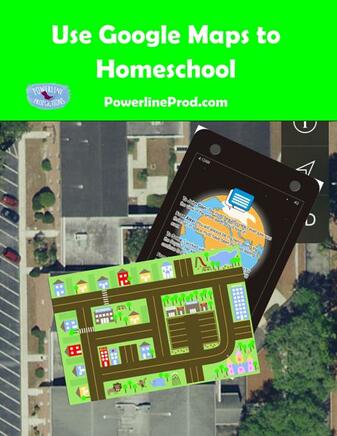 I have been using Google Maps quite a bit recently as two of my daughters were house hunting. Each of the MLS listings had a Google Map that allowed me to see where it was located. I would look at the other houses on the street and often switch to Google Earth to see it in a photograph. Soon I would find myself on nearby streets exploring and discovering streets, houses, and neighborhoods I never knew existed. It got me thinking. I realized that Google Maps would be a great way to explore the neighborhood and the world. Here are some ideas to get you started and I'm sure you can come up with many more. Explore Your Neighborhood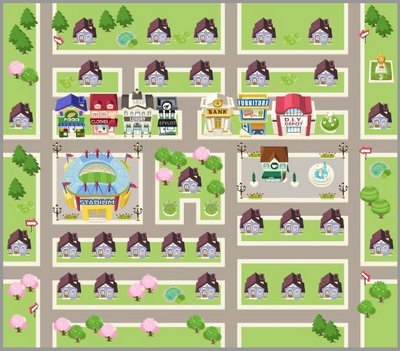 After exploring other neighborhoods, I realized what fun it would be to explore our own neighborhood. You simply type in your address to locate your house. It's so funny to see your house on Google Earth. One time we had left some toys in the yard and could see them in the photo. Once you see your home, you simply expand outward, exploring your street, streets nearby, and soon you will discover streets, stores, and large homes you never knew existed. This is super fun for the adventurous child. Now, of course, when you are finished, you have to get in the car and go see things in person. We found a beautiful street that looked like a dirt driveway from the main road, but it was dotted with lovely old historic homes. We had so much fun seeing them and imaging who lived in them now and who had lived in them long ago. Visit Dream Vacation Cities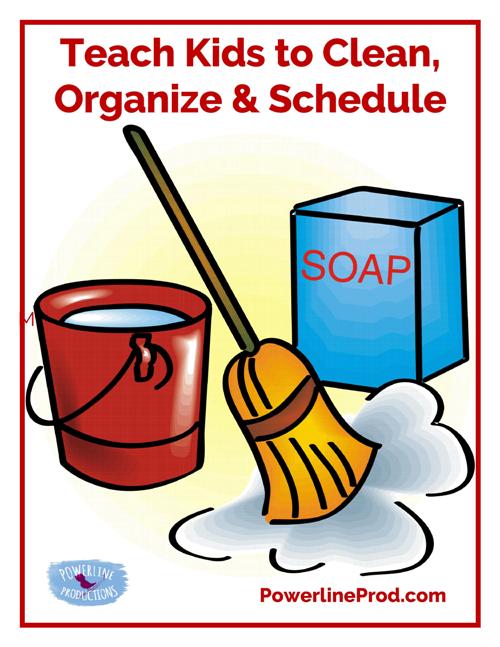 Some children love a tidy room and others...well...hmm. Let's teach children & teens to organize and clean their world in a fun way. Scheduling can be enjoyable, too. When we organize, clean, or work on schedules, I try to stay lighthearted and make it fun. I always have a treat afterward like watching a movie or going to the park. You see, these things are not my favorite things so how on earth would I expect it to be my children's favorite things, but they are part of life so I want to do them with a cheerful heart. My children will see things the way I do, so in training children, my attitude is the most important thing. Also: how well my children clean their room or stay on schedule or organize their things has NOTHING to do with their value. I never want to belittle my children over these things, but I want to lead them from success to success to success. In my family, there are messies. I won't name them in case you know them or meet them in person. Messies need more training, but they can learn to keep things mostly tidy. Free spirits can learn to stay on a loose schedule. Everyone can learn to clean. Here are some blog posts and a podcast on organizing: Smart Storage to Eliminate Clutter Clutter Control Organizing Your Homeschool Clean |
AuthorsMeredith Curtis Archives
February 2020
Categories
All
|
Powerline Productions
- Home
-
Books
-
Curriculum
- HIS Story of the 20th Century >
-
High School Courses
>
- Economics, Finances, & Business >
- American Literature & Research
- British Literature
- Who-Dun-It Murder Mystery
- Foundations of Western Literature
- Communication 101: Essays & Speeches
- Old Testament Survey
- Worldview: Understand the Times Workbook
- Drama
- Career Choices & the College Decision
- Real Men 101
- Real Men 102
- Real Men 103: Leadership
- God's Girls 101
- God's Girls 103
- God's Girls 104: Motherhood
- God's Girls 105: Homemaking
- Travel God's World Geography >
- Government
- Unit Studies >
- Teach History the Fun Way >
- Families Learn Together American History >
- STEM Notebooking Pages
- Middle School Courses >
-
Bible
- Cozy Mysteries
- Blog
Photos from cloudzilla, Fil.Al, vaniljapulla, m01229, Ian D. Keating, (Imagine) 2.0, Theo Crazzolara, RomitaGirl67, RomitaGirl67, Gonmi, moonlightbulb, RomitaGirl67, Amydeanne, Salva Martinez, Graham Ó Síodhacháin, Ruth and Dave, infomatique, MsSaraKelly, moonrat42, {Guerrilla Futures | Jason Tester}, Monica's Dad, kennethkonica, o palsson, Tourismusregion Katschberg, wuestenigel, COD Newsroom, ANBerlin, Henri Photography, Tourismusregion Katschberg, Corey Ann, *_*, diannlroy.com, Theo Crazzolara, DaPuglet, terren in Virginia, George M. Groutas, Bunches and Bits {Karina}, Anders Ruff Custom Designs, ¥§•ªˆ¨ˇ© LOVE © ˇ¨ˆª•§¥, srqpix, inkknife_2000 (8 million views +), judy dean, ANBerlin, Phil Roeder, Base Camp Baker, Anders Ruff Custom Designs
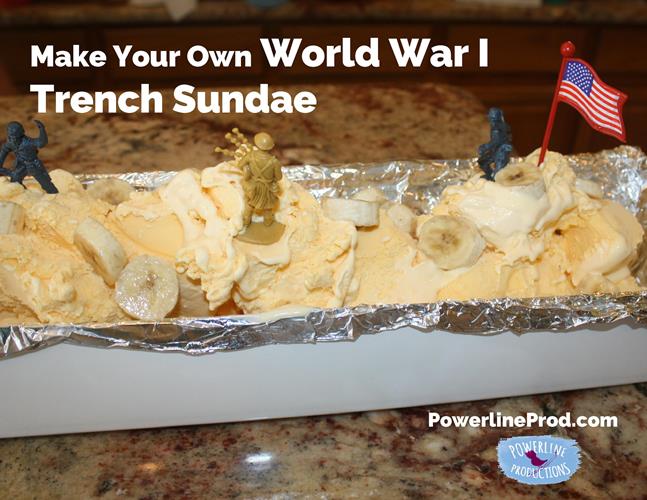
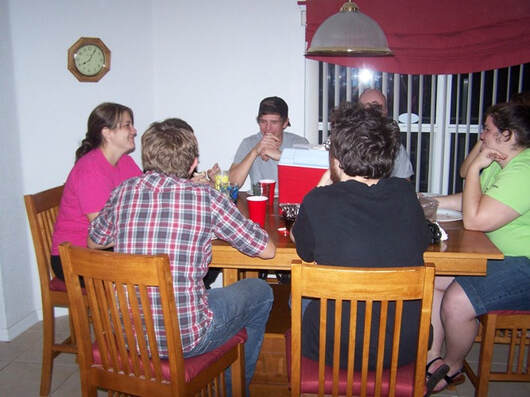
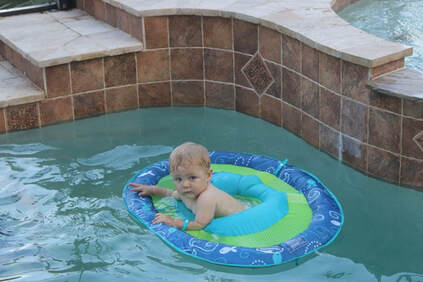
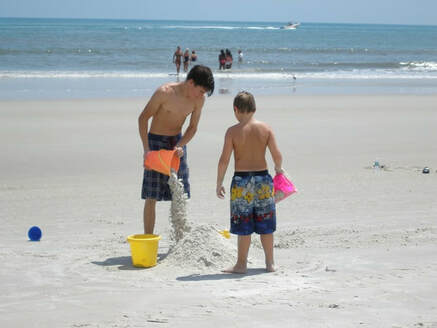


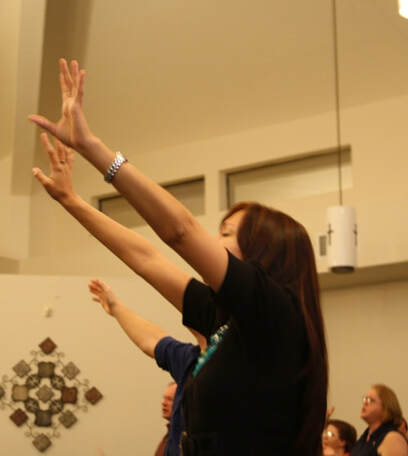

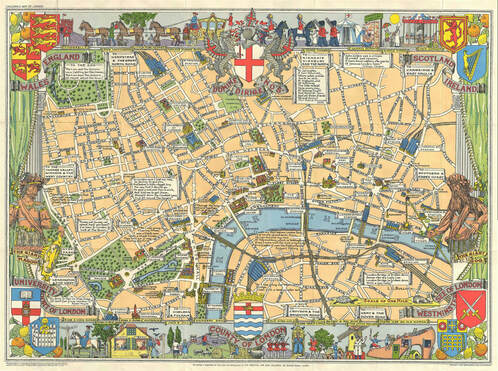
 RSS Feed
RSS Feed







